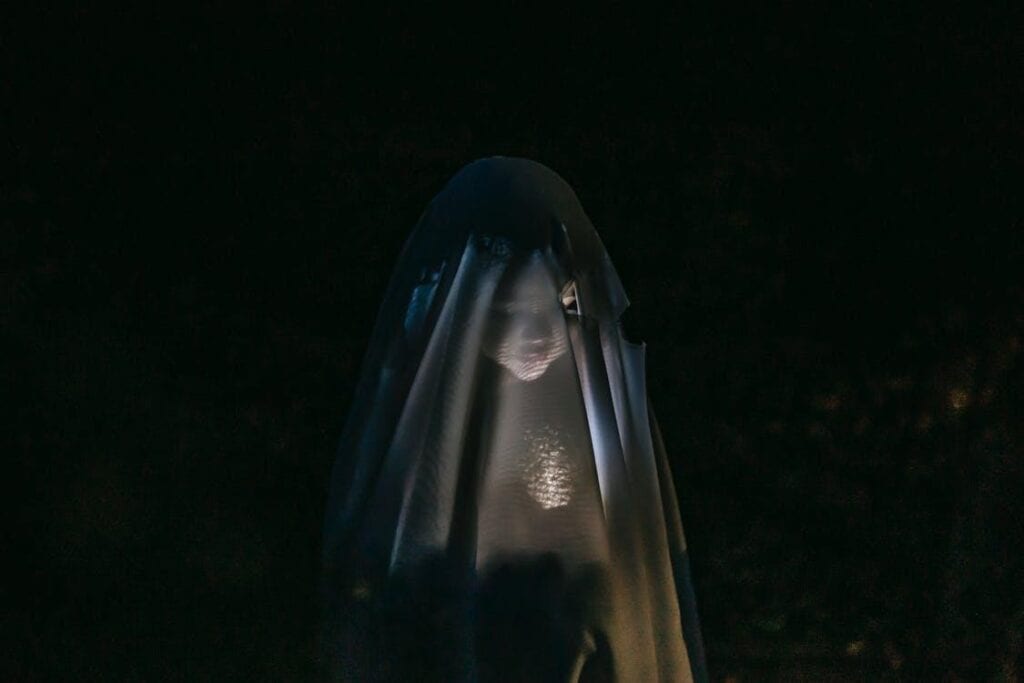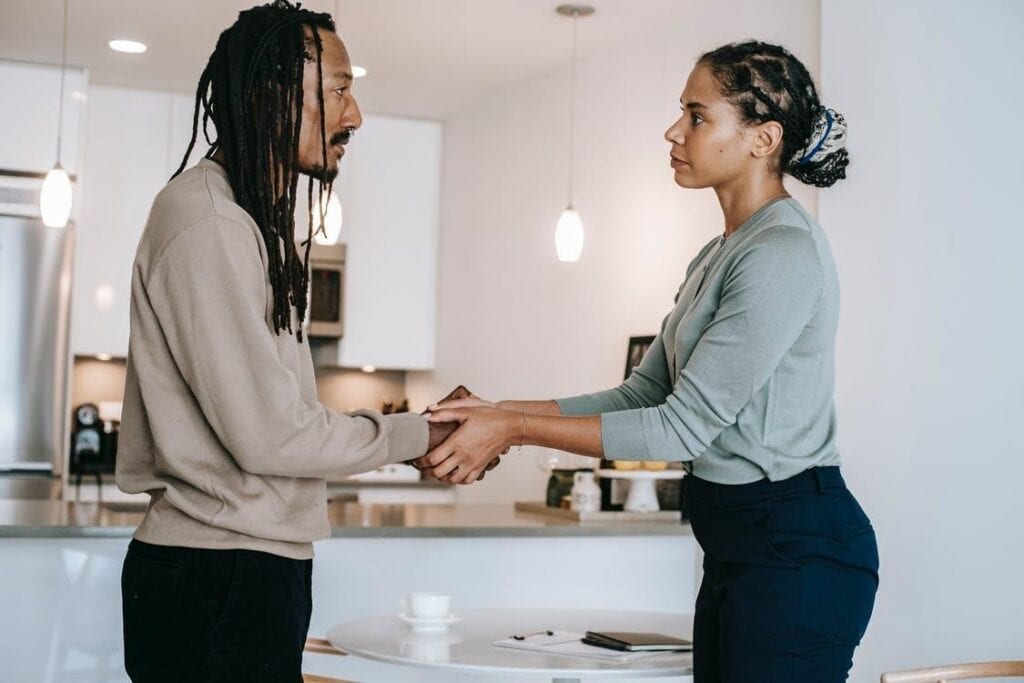Nyctophobia: How to Cope with the Fear of the Dark

Fear of darkness usually accompanies the period of growing up among children. However, at some point in life, it is supposed to fade away. It may not go away entirely, but it’s also not supposed to be a key concern in a person’s life.
In this article, we break down nyctophobia and ways to cope with it and reveal how online therapy can help.
Nyctophobia — Definition
What is Nyctophobia?

Nyctophobia comes from the combination of the Greek words “nycto” (night) and “phobos” (fear). It is an excessive fear of darkness that causes distress, anxiety, tension, or uncertainty.
People who have nyctophobia get to the point that they avoid darkness and circumstances that might involve the dark. Some even limit their activities to during the daytime.
As humans, we fear darkness because we cannot see what is around us. A person with nyctophobia experiences this fear to the extreme such that it negatively affects their lives.
The fear of darkness is also known as lygophobia, scotophobia, or achluophobia.
How to Identify Nyctophobia
The first step to treating any mental health issue is identifying it. Here are several symptoms of nyctophobia:
- Having intense emotional and physical reactions in the dark such as anxiety or panic attacks
- Avoiding going out at night and staying indoors at night
- Avoiding events in the dark
- Reduced engagement in social activities
- Feeling detached from oneself and reality
- Loss of control to the point when you might feel you’re going crazy
- Sleep problems
- Shaking, trembling, and increased heart rate when in the dark
- Lightheadedness
- Sweating and stomach upsets
- Feelings of powerlessness over the fear
- The need to sleep with the light on
- Feeling angry when someone urges you to go somewhere in the dark
These symptoms are triggered when the person is in the dark or even when they think about the dark.
Note that having some level of fear of dark might not necessarily mean having nyctophobia. Seek professional mental health support when the fear takes over your life.
Causes of Nyctophobia
The reasons why people develop nyctophobia vary. We’ve highlighted the most common ones:
“Learned” Fear
Children learn from us and how we behave. So, it is common for a child to fear the dark if their parent show their fear. Some phobias are passed down in families through the parents’ actions or even because of genetic predisposition, as suggested by some scientific studies.
Trauma
A traumatic event can cause the development of nyctophobia. It can a loss of a loved one, a history of abuse, or having witnessed something horrific.
Child Abuse
Physical, emotional, verbal, and sexual abuse makes a child experience night terrors andbeing afraid of darkness. Darkness triggers anxiety, stress, and even panic attacks.The phobia might remain with them if left untreated, even in adulthood.
Mental Health Issues
Fear of darkness might result from other underlying mental health issues such as anxiety disorders, chronic stress, or other specific phobias. Mental health disorders such as depression also take a toll on a person and make them more likely to developing nyctophobia.
3 Self-Help Ways of Coping with Nyctophobia
Most phobias do not need treatment since they don’t affect everyday life. Nyctophobia, however,may weigh heavily on a person because darkness is an inevitable part of our lives.
One of the quick ways people use is switching to a lit room during nighttime or leaving the lights on while going to sleep. However, that does not address the underlying problem. Online therapy platforms such as calmerry.com can provide the support a person needs from the safety of their home
Some self-help ways for managing fear of the dark include the following:
Phrase Activation

It is a technique that involves repeating some words like a mantra when faced with darkness. For example, something like,“It’s dark, but I’m safe.” Repeating the phrase aloud several times helps bring down the adrenaline from the fear of darkness.
Breathing Exercises and Muscle Relaxation Techniques
Breathing exercises bring down the heart rate and slow down thoughts. They also contribute to improving a better quality of sleep.
Breathing exercises include focusing on the air entering and leaving your nose while taking deep, slow breaths.
Muscle relaxation activities such as yoga and meditation also help release some of the nighttime anxiety and tension.
Focus on a Positive Image When in the Dark

When in the dark, try to imagine a positive picture. It can be your favorite pet, your loved one, or even a place you might want to visit. The technique aims to bring down the effects that the darkness might have on you.
Professional Treatment for Nyctophobia
If the above methods do not work in helping manage your fear of the dark,it might be time to seek professional assistance. Some of the approaches of treatment of nyctophobia include:
H3: Medication
Medication is recommended for severe cases of nyctophobia and should only be prescribed by a qualified health care professional. Sedatives are the most likely to be recommended to reduce stress and make sleeping easier. You should seek treatment if:
- The fear results in extreme anxiety and panic
- The fear is unreasonable or excessive
- You develop sleep disorders like insomnia
- Overall health and life get affected
Psychotherapy

Cognitive Behavioral Therapy
It is a therapeutic approach that involves discussing the symptoms of the mental issue with the person and helping them understand their thinking and behavior patterns.
A therapist can assist a person in identifying specific thoughts that trigger their anxiety in the dark. Thus a professional helps a person manage emotions and “adjust” those thoughts, reducing symptoms of nyctophobia.
Exposure Therapy
Exposure therapy involves facing your phobias head-on. It can be pretty uncomfortable initially, but it aims to “desensitize” the person to fear. For example,your therapist might guide you on how to face your fear and manage your anxiety.
Joining a Support Group
Support groups are usually beneficial, especially when combined with other nyctophobia treatment approaches. Sharing and listening to the struggles of others can inspire a person to start a journey to recovery.
Talk with Someone You Trust

It has to be someone who will not judge you and who’ll help you in identifying events in your past that might have caused the phobia. Understanding how your mind works and how you react will better equip you to cope with your phobia of the dark.
It’s highly recommended to reach out to a mental health professional who can create a safe space for you to open up and learn how to cope with your phobia.
The Takeaway
Struggling with nyctophobia should not make you question your bravery. It is a phobia that anyone can develop, regardless of age and sex.
The self-help tips we provided can help you cope with the phobia but seeking professional support is the best solution. If left untreated, nyctophobia can impact a person’s life.
During this pandemic period, seeking face-to-face professional therapy is challenging.




